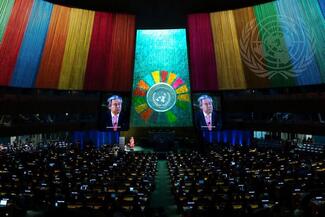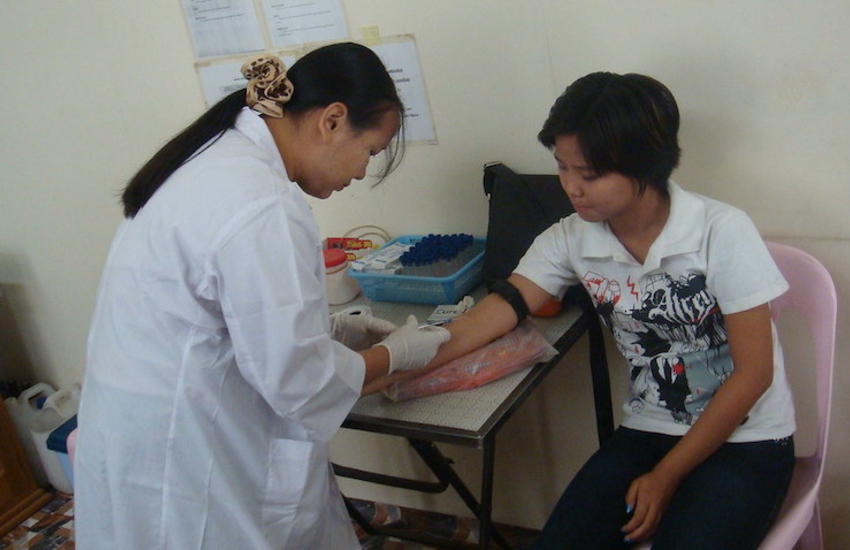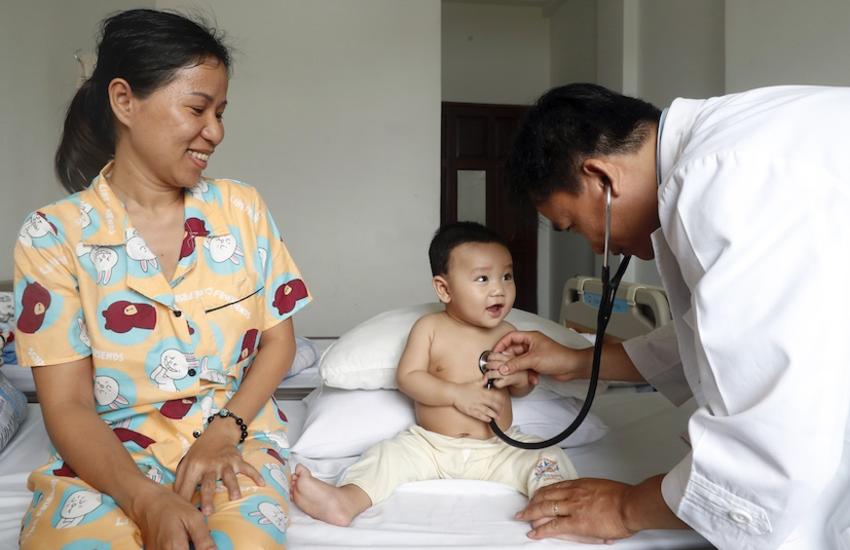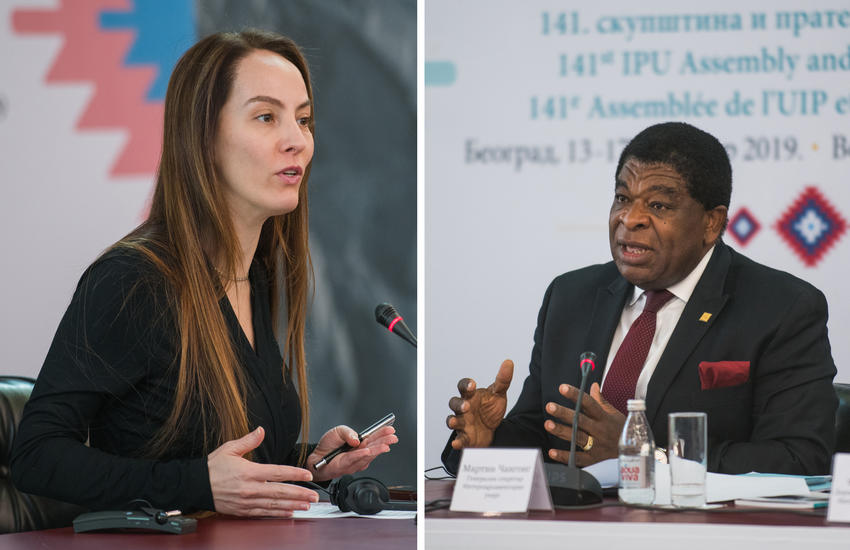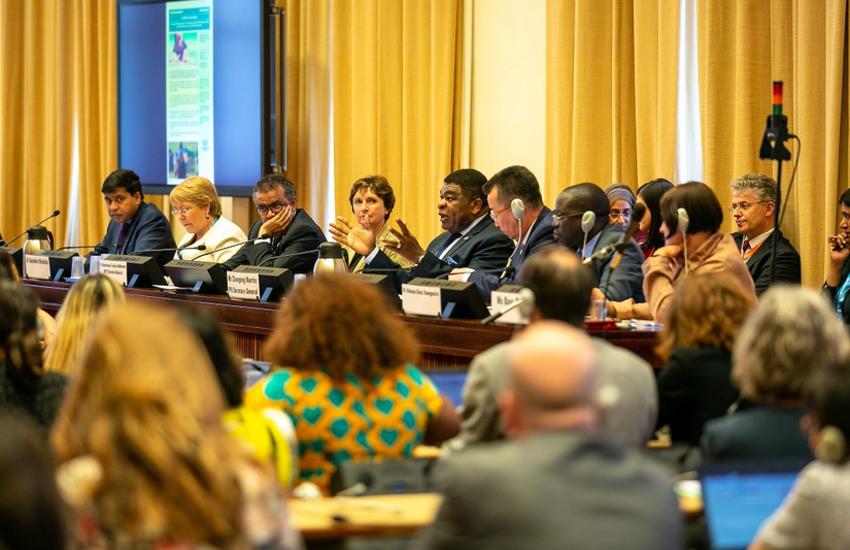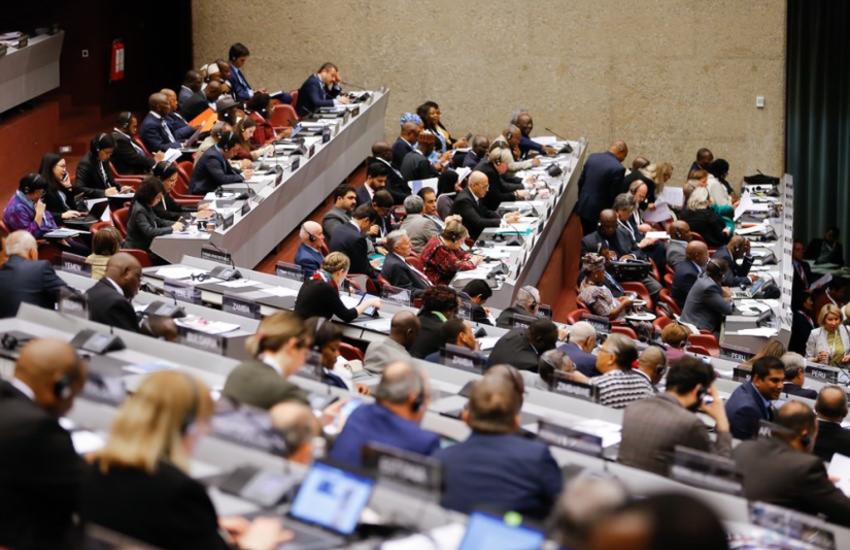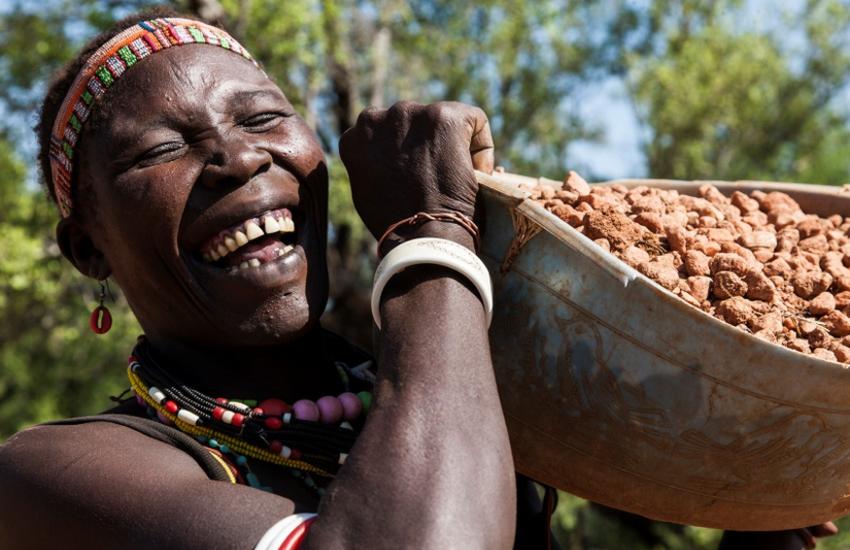Bridging the gap between global commitments and local realities, the IPU was at the opening of the 73rd UN General Assembly (UNGA73) last week to help mobilize parliaments and MPs around UN events. Non-Communicable Diseases (NCDs), better nutrition, and access to health for women and children were at the top of the agenda.
Gabriela Cuevas, IPU President, made a political declaration at the Third High-Level Meeting on NCDs. The meeting’s objective was to reinvigorate efforts to drastically reduce the incidence of diseases such as cancer, diabetes and heart disease, which cause over 30 million deaths a year. Gabriela Cuevas underscored the role of the IPU and of parliaments in building the required political will to help prevent these deaths. As she noted, “parliaments play an important role in setting priorities at the national level and in developing legislation to promote healthy lifestyles and address the risk factors of NCDs. Through their budgetary prerogatives, parliaments can ensure that adequate and sustained resources are allocated to NCD plans and strategies.”
“Parliaments should make nutrition a political priority” said Martin Chungong, IPU Secretary General and Lead Group Member of Scaling up Nutrition (SUN), a movement whose objective is to end malnutrition. At the SUN meeting, he stressed the importance of integrating a gender perspective into all IPU-organized parliamentary activities relating to nutrition, of raising awareness among MPs of the need to overcome barriers to gender equality to achieve better nutrition for all. Since the Secretary General joined the Lead Group, the IPU has mobilized 32 parliaments to act on nutrition.
The IPU was also present at the launch of the third annual report of the Independent Accountability Panel for Every Woman, Every Child (EWEC), a global movement that mobilizes support for the health challenges facing women and children. The report, Private Sector: Who Is Accountable, calls for governments worldwide to beef up regulation of private companies involved in health service delivery, the pharmaceutical industry, and the food and beverage industry to safeguard the right to health for women, children and adolescents.
“Members of parliament are in a unique position to create an enabling regulatory environment that clearly defines the roles and responsibilities of private sector actors,” stressed Martin Chungong at the launch. “MPs can help remove barriers to universal access to services; set standards against which businesses can be held accountable; and provide incentives for the private sector to play a constructive role for the health of the most vulnerable”.
The IPU President has recently joined EWEC’s High-Level Steering Group upon the invitation of the UN Secretary-General. The group met in the margins of the General Assembly. She also took part in the annual Accountability Meeting of the Partnership for Maternal, Newborn and Child Health (PMNCH). The IPU and PMNCH will reinforce the technical assistance the IPU gives parliaments to help them raise awareness and pass legislation to promote maternal and child health.
The International Gender Champions, a leadership network that promotes gender equality, also launched a new product, its Gender Responsive Assemblies Toolkit at a side event at UNGA73. The toolkit is designed for all those interested in creating a more inclusive and harassment-free environment at their assemblies. The toolkit encourages gender balance on delegations, promotes meaningful participation of women in deliberations, and advances gender equality on agendas and outcomes.
International Gender Champion, Martin Chungong, said “As a global convener of MPs and parliamentary staff, the IPU is constantly working to ensure that gender equality is part and parcel of our assemblies. We track and publicly report on the gender composition of all panels that we organize and ensure that at least 30 per cent of participants are women. This toolkit is full of practical tips that will help us and other organizations reach better gender parity.”





